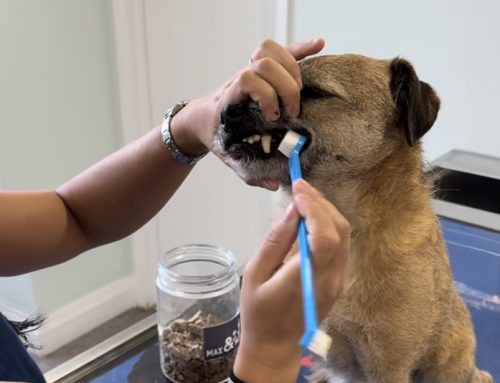TICK TALK – MARCH IS TICK AWARENESS MONTH
If your pet is not already on tick prevention, now is the time to start.
Did you know that ticks can be active all year round? A common misconception is that ticks are gone during the cold winter months. However, ticks are active when the temperature is at 4°C or above. This means that they can still be active in the winter.
Now that Spring is approaching it is definitely time to start thinking about ticks.


What Do I Do if I Find a Tick on my Pet?
After taking your pet out for a fun walk, you thoroughly check their coat and OH NO! you’ realize a tick has attached itself onto your pet. Stay calm, its important to remember that you’ve found the tick! Take action immediately, the longer ticks are allowed to feed the greater the chance of transmitting disease.
The next step is to remove the tick off your pet, if possible we advise allowing a veterinarian to remove the tick to ensure all the tick is removed. However, if you need to remove the tick at home, keep reading!
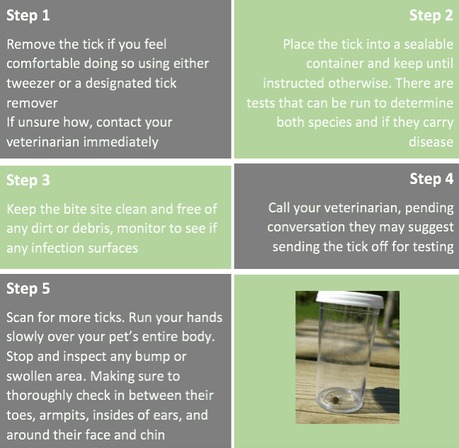
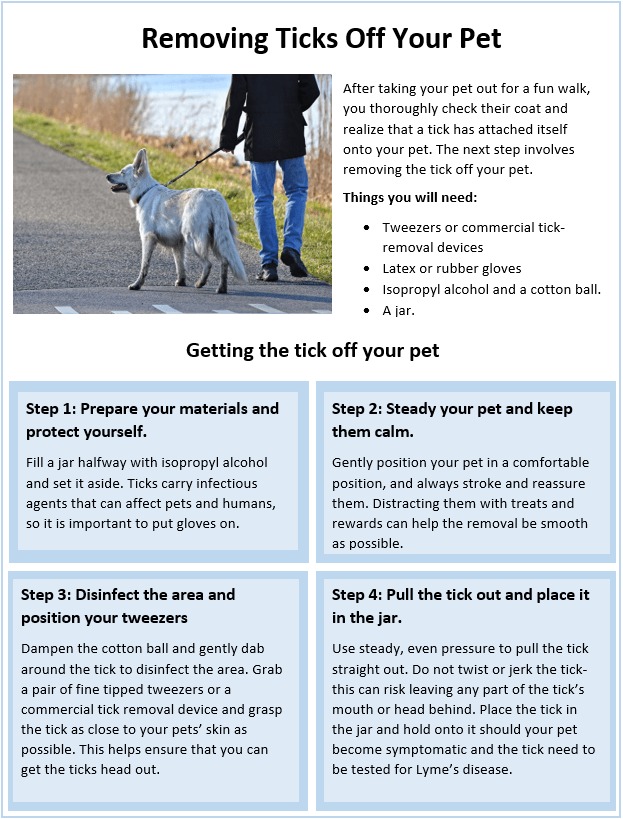
What else can I do to protect my pet?
Tick Prevention
Understanding how it works and why it is so important.
What is it?
Tick prevention is veterinary prescribed medication usually given once a month and comes in two forms:
Topical – works by spreading in the fat layer of the skin over the surface area of the body

Chewable Tablet – works by circulating through the blood stream. Both forms, when ingested by the tick, causes death before infection can spread.
Why is it important
You may be thinking, “my dog already has the Lyme vaccine, do I need to give tick preventatives as well?”. The answer is YES. Comprehensive protection that includes both vaccination and monthly protection is best practice.
- Provide protection against other parasites such as mites, lice and fleas
- Different species of ticks are capable of spreading different diseases
- Kills before transmission of disease
- If unnoticed/untreated, could lead to infestation of your home
- Large numbers of ticks left to feed can lead to severe blood loss and anemia
Did you know?
When ticks first attach they can be the size of a grain of pepper. Meaning ticks can go unnoticed for a long time, leaving your pet and family at risk.
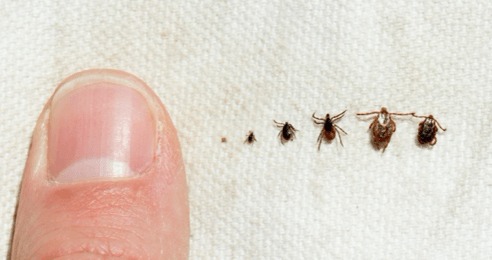
Vaccinate your pet against Lyme Disease
The Lyme disease vaccination is recommended based on your dog’s exposure risk and individual lifestyle. With the warmer months approaching, now is the time to consider incorporating the Lyme vaccine into your pets vaccination protocol.
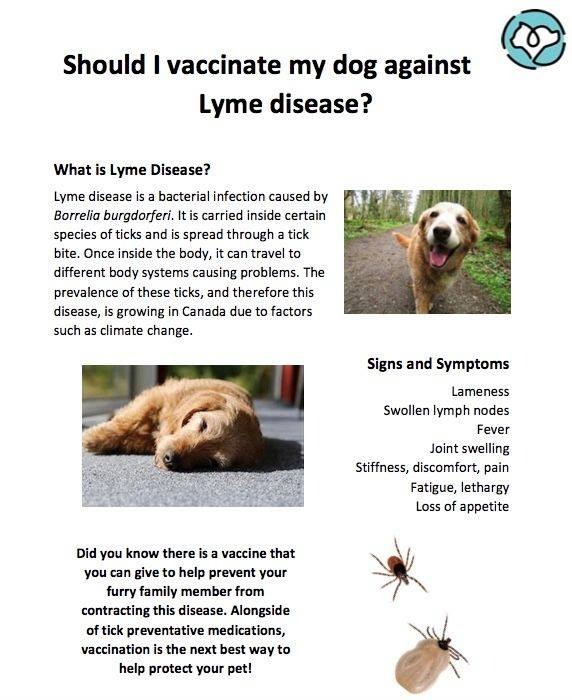
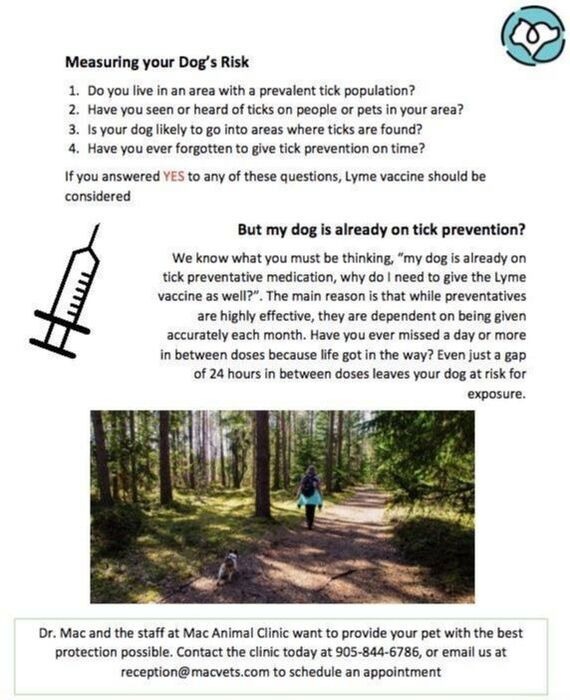
Don’t forget about our feline friends!!
Ticks do not discriminate with their hosts, and the great outdoors poses a risk for our curious cats as well. Outdoor cats that like to adventure and roam are at a greater risk of getting into contact with ticks.
It is important to ensure that your cat is protected and checked for ticks whenever they come back from an outdoor adventure!
** Not all tick prevention is the same. Some products that are made for dogs are not safe for use on cats. ** If you have an outdoor cat that needs tick prevention, please speak to a member of our team at 905-208-9933


